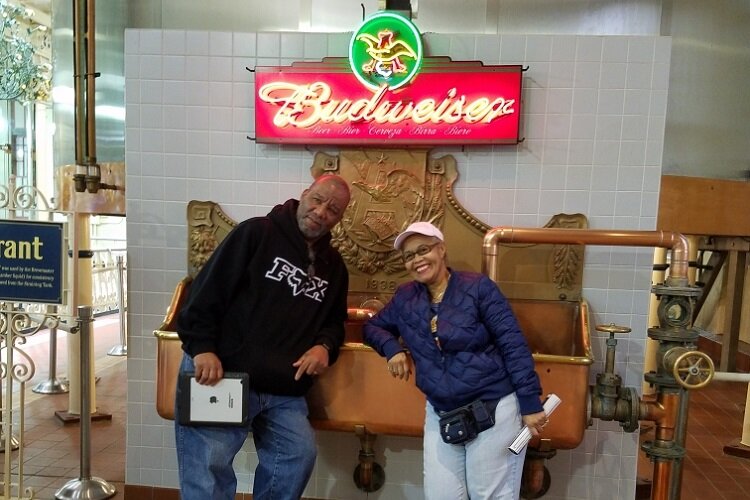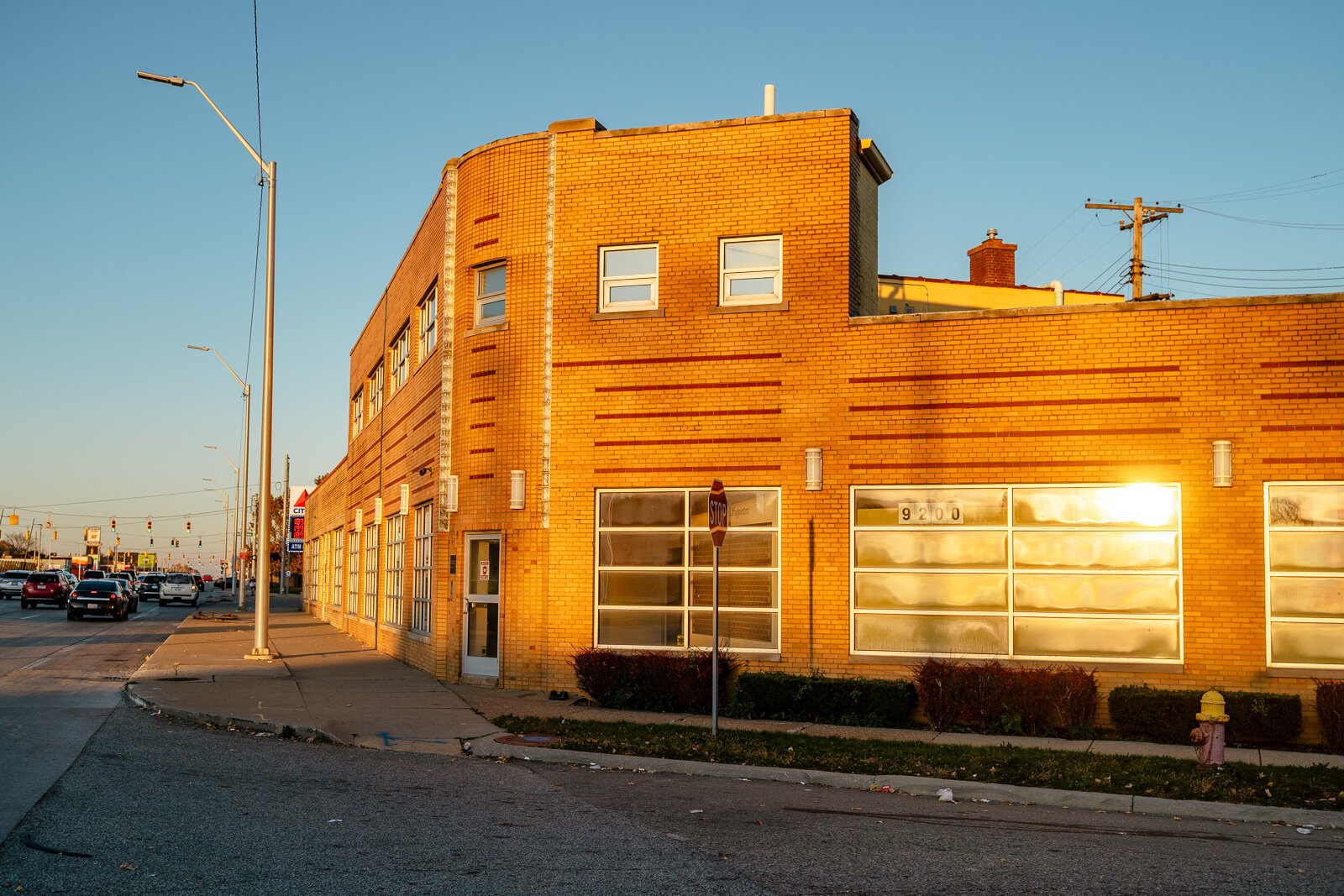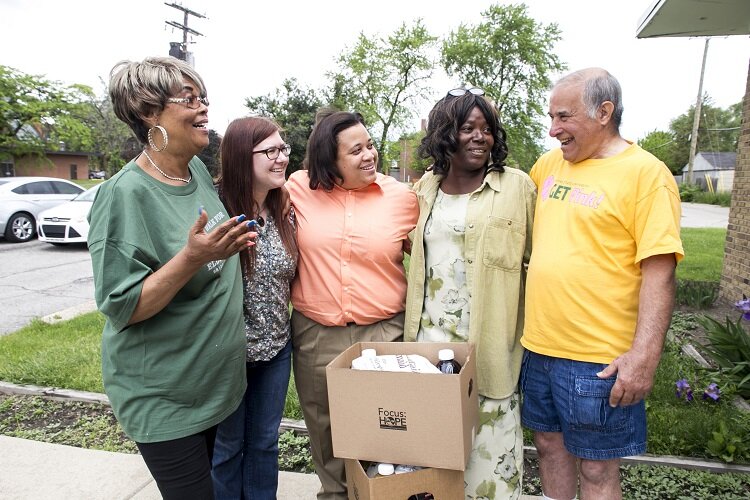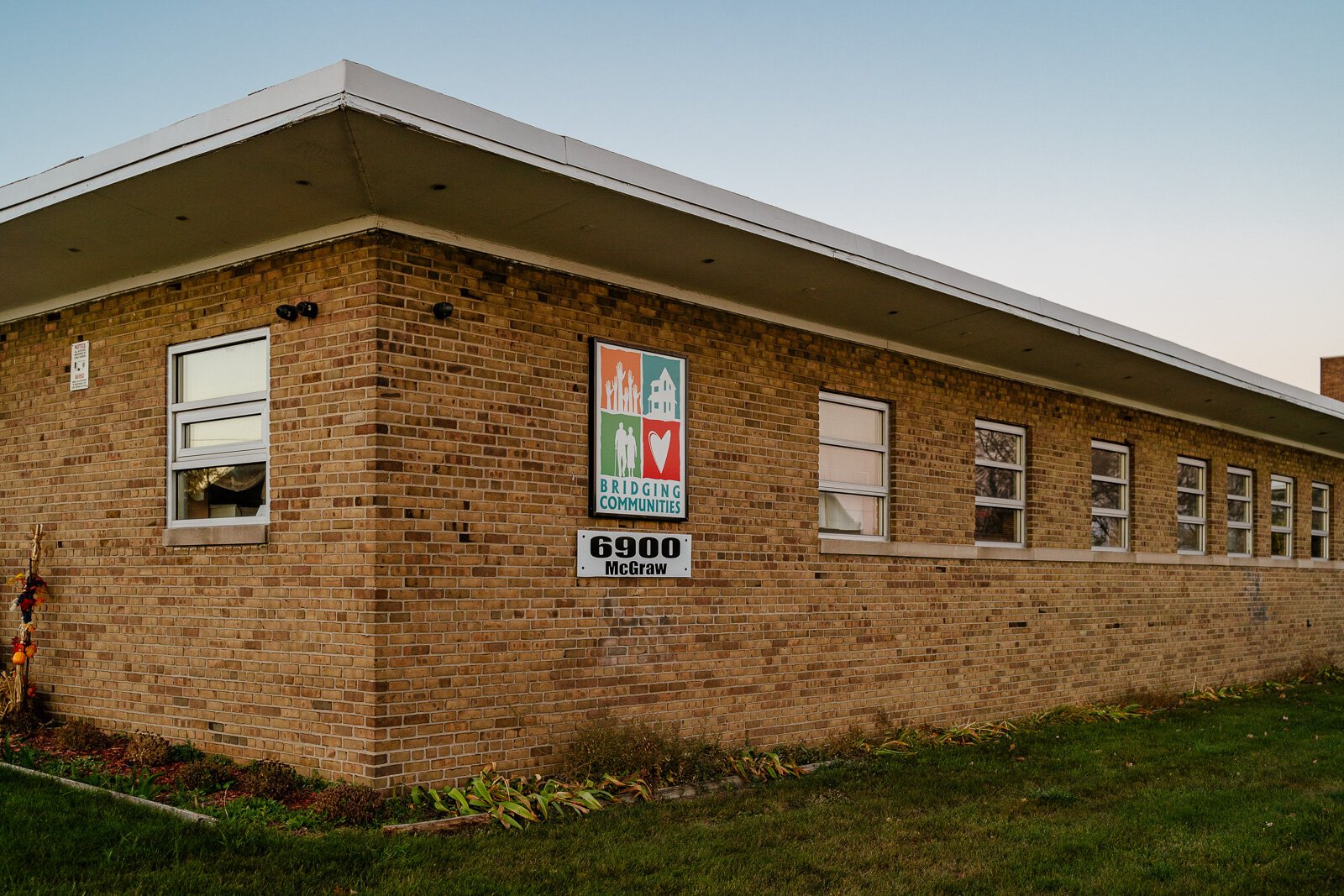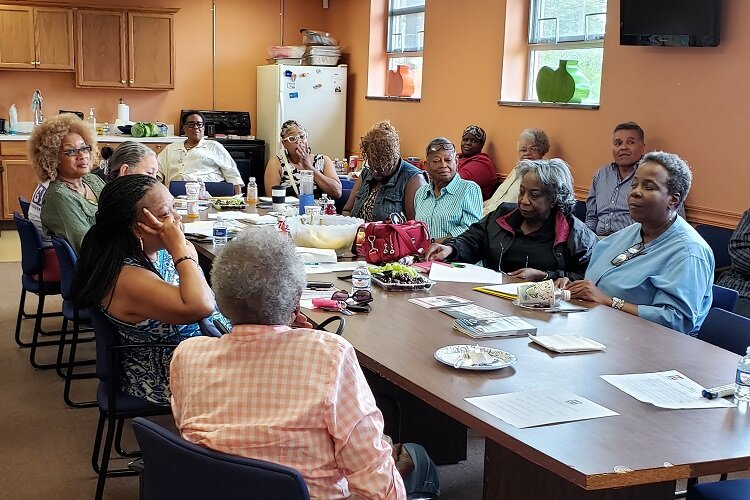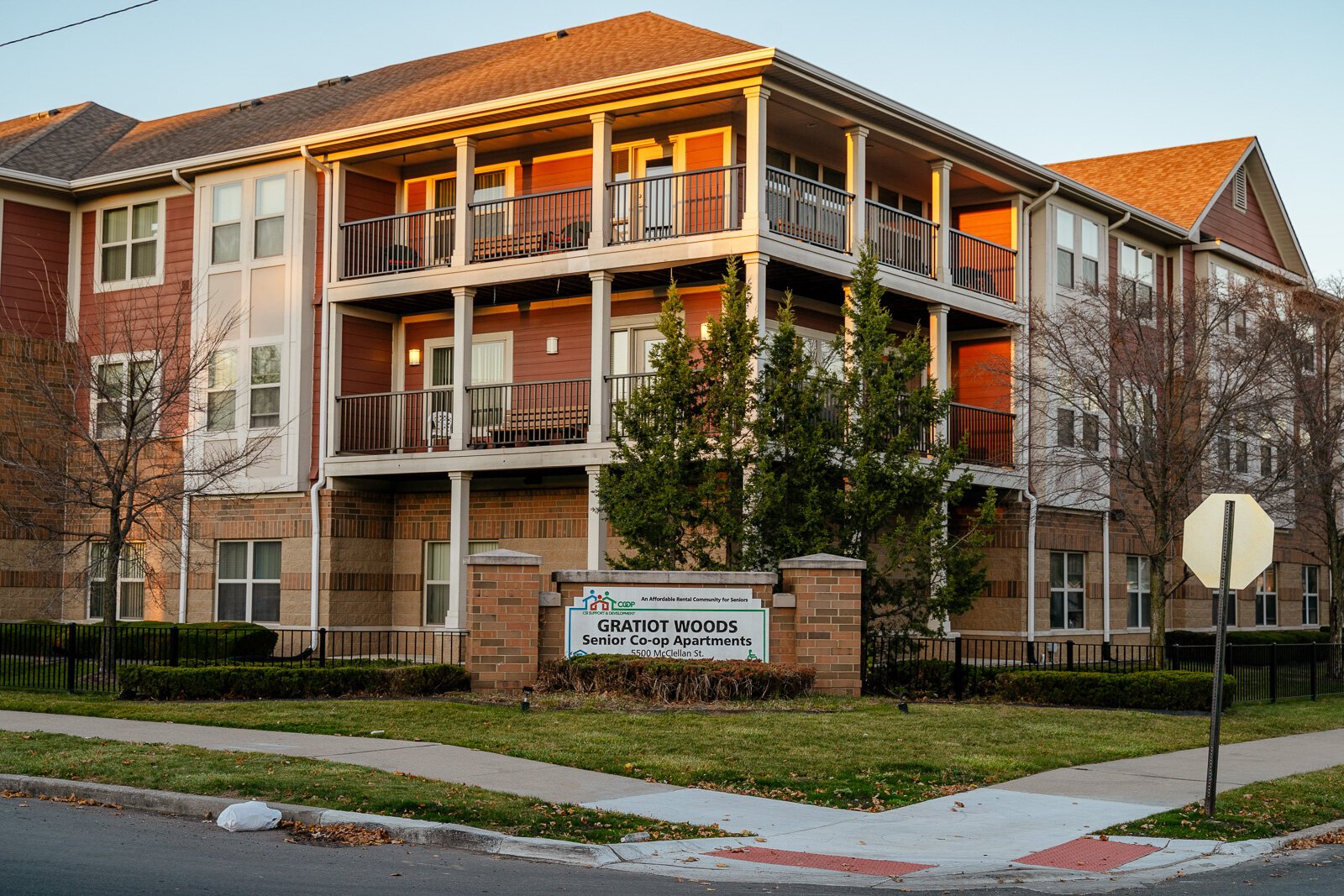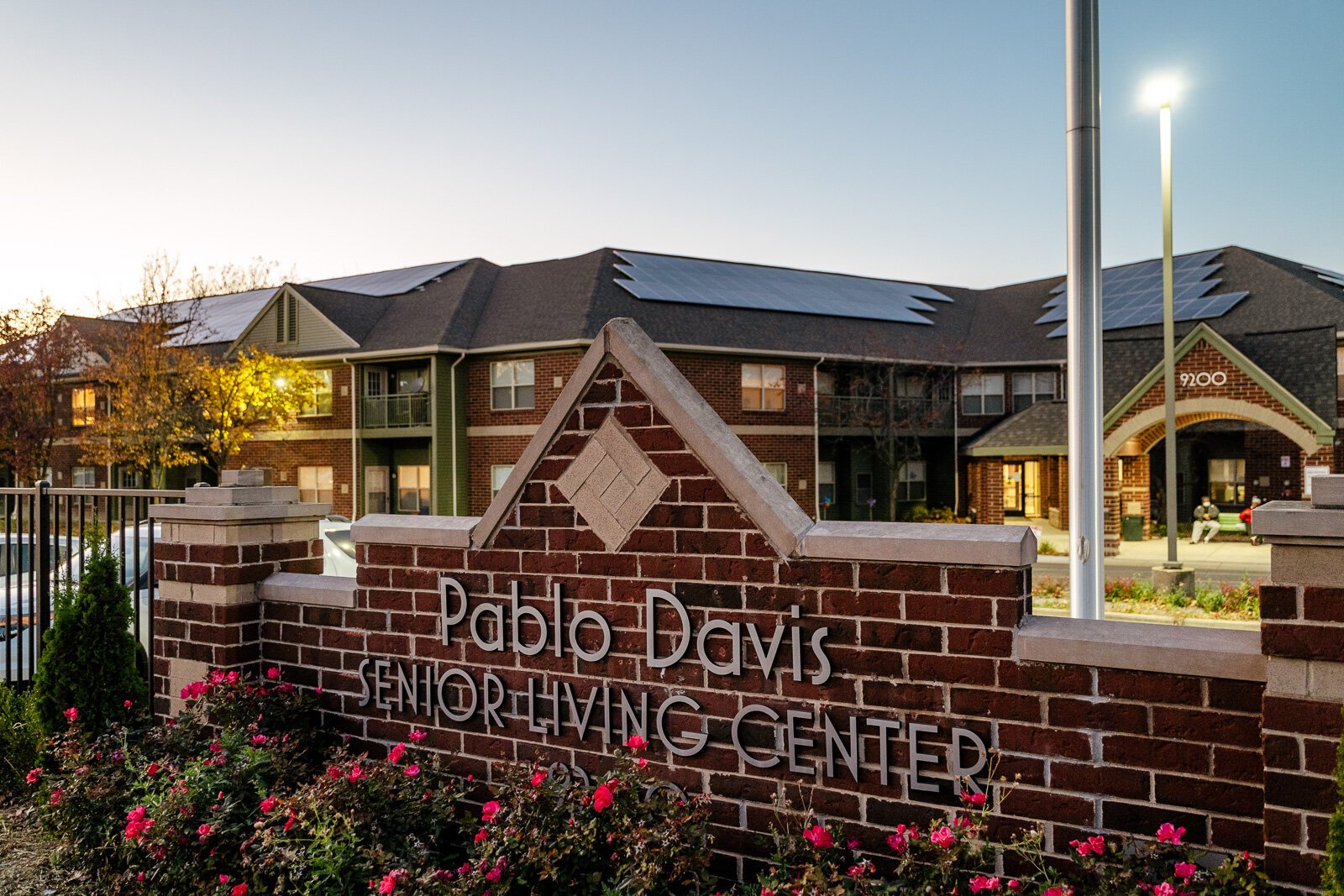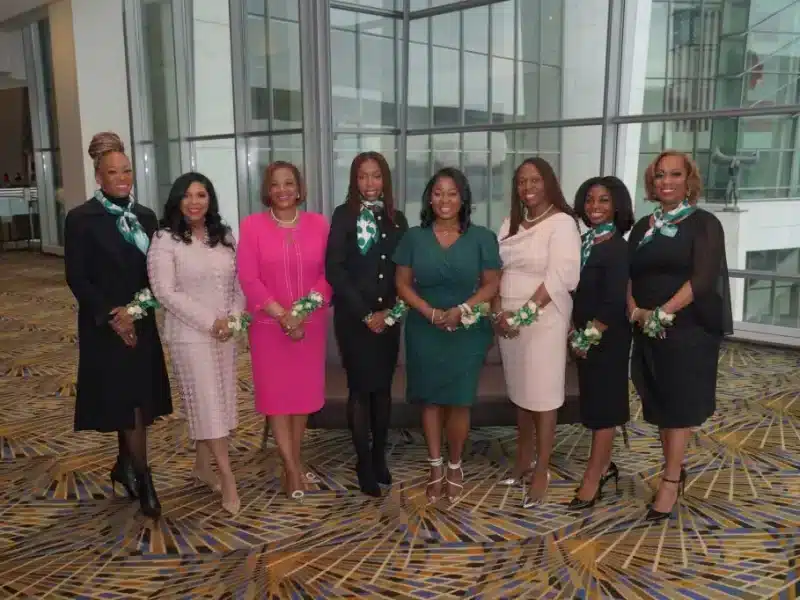Resilient Neighborhoods: How two Detroit nonprofits are helping seniors stay engaged
COVID-19 has made their work more difficult, but these Detroit community development organizations are still doing their utmost to support elders during this difficult time.
Like so many of us, Renee Jordan, a longtime resident of Detroit’s east side, really hasn’t been able to socialize the way she did before the COVID-19 outbreak. The outgoing 62-year-old especially misses spreading time with her friends in the Senior Network, a program of the Detroit Catholic Pastoral Alliance (DCPA) that organizes trips and social events for elders in the Motor City.
“Right now, we’re crying because the pandemic stopped our traveling,” says Jordan.”We’re just waiting to get back to traveling again.”
Seniors involved with the group, which numbers about 85 people, take trips around Michigan to areas like Traverse City and Mackinac Island as well as out-of-state to places like Ohio and Niagara Falls.
Jordan, a former retail and casino worker who is now retired, got connected with DCPA’s Senior Network as a parishioner with Sacred Heart Catholic Church in Detroit. Being involved with the group has helped her feel more engaged with her wider community, something she feels is critical for people as they get older.
“Seniors can’t just sit around. They’ve got to join different organizations and stay active,” Jordan says. “The main thing is socialization. You have to do that in order to stay vibrant.”
Bringing elders together
Jordan isn’t alone in suggesting that being active and feeling connected are important for people as they move into their golden years. The National Institute on Aging recommends that seniors engage in physical and social activity to preserve their cognitive health and promote wellness as they age. And in the city of Detroit, the need for services that address these and other eldercare needs certainly can’t be understated.
To start with, Detroit has a fairly sizable senior population. According to the U.S. Census, there’s a little over 89,000 people over the age of 65 living in the Motor City, accounting for 13.3% of the roughly 670,000 total residents living here.
What’s more, an analysis by Data Driven Detroit based on 2010 census data found that about 41% of Detroiters over the age of 60 live by themselves. And as if potential isolation isn’t a big enough challenge, older Detroiters also face an elevated risk of premature death.
According to a recent report by the Detroit Area Agency on Aging, the death rate for residents between the ages of 50 and 59 in the city of Detroit is 122% higher than for Michigan residents who are that age as a whole. For elders from the ages
of 60 to 74, that rate is 48% higher.
While that’s sobering news, organizations like the Detroit Catholic Pastoral Alliance are focused on helping elders to meet needs and address challenges.
Spearheaded by 14 Catholic parishes located around the city of Detroit, the Detroit Catholic Pastoral Alliance is a faith-based community development organization whose work with seniors falls within a larger mission of social service.
It originally started in 1967 as an informal group aimed at discussing scriptures and advocating around local quality-of-life issues. The alliance came together more formally in the 1980s to address challenges related to the closing of more than 30 churches in the city. In addition to senior programs, the Pastoral Alliance addresses a variety of issues including housing, economic development, youth programming, and racism. While some of this work has a citywide reach, for the last 25 years the organization has focused its development efforts on the east-side Detroit neighborhood of Gratiot Woods. It’s a poorer, predominantly African-American part of Detroit, where seniors make up about 65% of the population.
The Senior Network — which is open to all seniors in the area, not just Catholics — came together about 10 years ago, while the alliance was co-developing the Gratiot Woods Co-op Senior Apartments.
“We found that a lot of the seniors lived there,” says DCPA Executive Director John Thorne. “But they didn’t have access to transportation. And they didn’t have family members that came and visited them. So a lot of times they had to find community right where they were.”
While it started as a social leisure group, the network eventually evolved to include trips to areas in and around Michigan that many elders in the neighborhood would otherwise not have been able to visit.
While COVID-19 has thrown a wrench into the group’s travel outings for right now, the Pastoral Alliance has been doing things like sponsoring Zoom meetings and holding weekly check-ins to keep in touch with the elders in its programs. Beyond organizing social events, DCPA has also been working to provide local seniors with food and other basic items. According to Thorne, that’s become increasingly important for seniors since the pandemic started because riding the bus safely has become more difficult for seniors.
“We try to do our best to connect with them and connect them to resources,” says Thorne. “We try to do our best to check in with them. And they call the office if they need something or just to see what’s going on in the community.”
Helping seniors stay engaged
Like the Pastoral Alliance, Bridging Communities also works to provide assistance and community to local seniors. Partnering with local unions, businesses, faith-based organizations, and residents, the nonprofit works to promote neighborhood stabilization and offers a mix of affordable housing, neighborhood stabilization, intergenerational programming, and senior support to communities in Southwest Detroit.
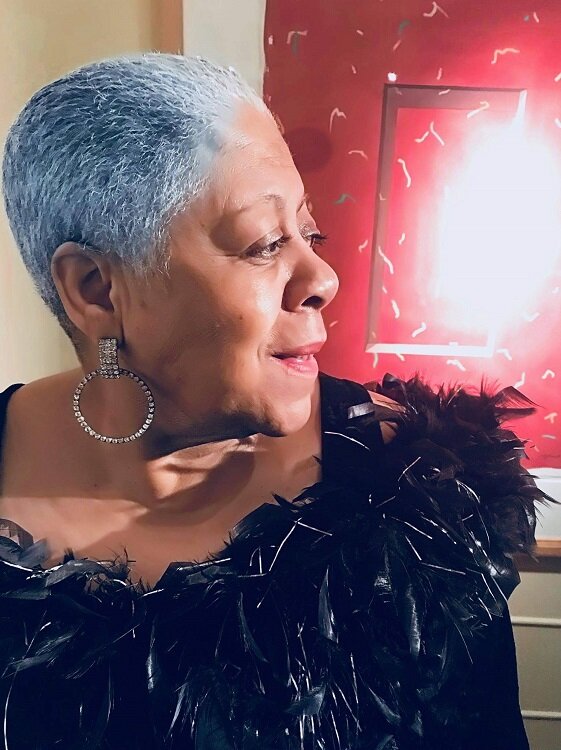
“Our primary focus is eldercare, keeping elders in their homes as long as possible and doing that through an array of services,” says the organization’s Executive Director Phyllis Edwards.
Bridging Communities began its work in 1980 as an organization called Ecumenical Project S.A.V.E. (Seek and Visit the Elderly), which formed through the efforts of the Lutheran Church and other organizations that wanted to uplift local at-risk seniors. The organization, which adopted its current name in 1999, works with about 400 seniors on an ongoing annual basis and about 1,500 additional clients throughout the year.
While Bridging Communities services the greater Southwest Detroit area, its efforts with affordable housing and neighborhood stabilization are focused on the neighborhoods of Chadsey-Condon, Claytown, Springwells Village, and the 48217 ZIP code.
Part of that work involves buying and rehabbing foreclosed homes in these communities and finding responsible owners for them. The nonprofit is also responsible for the development of several senior living facilities, including the Pablo Davis Elder
Living Center, which it owns, and Heritage Place at Magnolia, which it co-owns, and 24 townhomes geared toward grandchildren who are raising their grandchildren.
Beyond that, Bridging Communities also sponsors an intergenerational activities program that has involved over 100 seniors and youth at five local schools. It’s aimed at breaking down barriers between older and younger Detroiters in a way that builds trust and respect and allows elders to share valuable life lessons.
Then there’s the nitty-gritty of the organization’s elder care work, which involves different types of assistance including food delivery, medical and pharmacy transportation, snow removal, health, and case management as well as connecting seniors with legal and other resources.
Myrna Griffin, a former City of Detroit employee and political strategist who’s been advising Gov. Gretchen Whitmer on senior concerns, is thankful for the billing and case management help Bridging Communities has given her.
“I’ve probably got one of the thickest records over there,” says the 74-year-old Southwest Detroit resident. “They’ve helped me with my tax situation. They’ve helped me extend bills. I can call them five days a week, and if I need anything they’re there for me.”
Although she’s very active and volunteers in her community, the nonprofit’s assistance with paperwork is especially helpful to her since she lives on her own and both of her sons have passed away.
Nance Conner, a 78-year-old retired janitor who lives at the Pablo Davis Elder Living Center, is also appreciative of Bridging Communities efforts.
Another active senior, he enjoys staying at the independent living center, which sports amenities like on-site washers and dryers and a community room (though that’s become somewhat restricted due to the pandemic). His one critique is that he wishes the management would check in on residents a little more than they do right now — about twice a week — because he worries about the possibility of passing away without anyone knowing for several days.
As for Bridging Communities help with bills and other paperwork, he’s quite happy with the job they’ve done.
“They’re good people,” says Conner. “They keep me updated. They make sure I’m up to date on bills. If I forget, they don’t forget. Anything. They make sure I stay in front of everything.”
Although a few seniors took sick with COVID-19 at Bridging Communities senior living facilities, they have thankfully recovered. As for the organization’s support work, the pandemic has definitely required some adaptation.
“That vicious COVID has challenged us in a lot of ways, but fortunately we’ve been able to pivot and meet those demands,” she says.
The nonprofit continues to deliver around 100 food boxes a week to local seniors and still helps out with casework management for things like Medicare and food assistance. It’s working on a program to install Wi-Fi stations in Southwest Detroit to help seniors gain access to telehealth services and has been organizing virtual tours of zoos and museums in an effort to reduce social isolation.
Reflecting on her organization’s mission, Edwards feels helping elders stay healthy and active is essential, not just for their own well being, but also for the often unacknowledged work they do volunteering in the community, mentoring youth and sharing stories about history they’ve experienced firsthand.
“Seniors are a critical part of our community,” she says. “Without them, we lose a whole lot of wisdom, a whole lot of value, and a whole lot of support that’s needed for our younger generations.”
Resilient Neighborhoods is a reporting and engagement series that examines how Detroit residents and community development organizations are working together to strengthen local neighborhoods. It’s made possible with funding from the Kresge Foundation.
